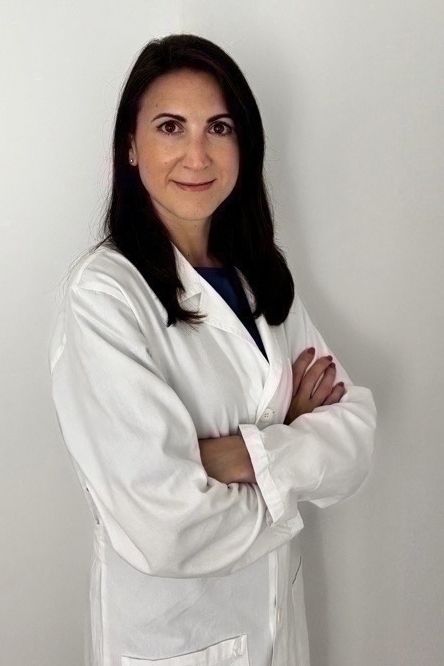
ORCID ID: 0000-0001-8099-3142
Curriculum: Clinical Neuroscience
Tutor: Prof. Davide Pareyson
Supervisor: Dr. Roberto Cilia
Workplace: “C. Besta” Neurological Institute
Dr. Roberta Telese is a Medical Doctor and Neurologist specialized in Movement Disorders. She graduated from the Faculty of Medicine of the University of Florence and completed her residency program in Neurology at the University of L’Aquila, where she developed her interest in the fields of Movement Disorders and Clinical Neurophysiology. During her final year of residency, she joined the Movement Disorders Unit of “C. Besta” Neurological Institute in Milan, where she had the opportunity to deepen her knowledge by observing numerous clinical cases and dealing with experts in the field. In 2020, she defended her thesis entitled “Sex differences in outcome of patients treated with Deep Brain Stimulation for Parkinson Disease and Dystonia”.
She attended national and international congresses and courses, including the Movement Disorders Society Summer School for young Neurologists and the European Academy of Neurology Spring School for young Neurologists.
Since 2022, she has been a Neurology Consultant at the Movement Disorders Unit of “C. Besta” Neurological Institute, where she is involved both in clinical and research activity. She expanded her research interest to the study of the Autonomic Nervous System and of biomarkers of neurodegeneration.
In November 2023 she began her PhD in Clinical Neuroscience under the mentorship of Prof. Davide Pareyson, Dr. Roberto Eleopra and Dr. Roberta Cilia, with a research project on alpha-synuclein detection in tissue samples from possible prodromal Multiple System Atrophy.
PhD research project
Exploring alpha-synuclein detection in tissue samples from possible prodromal Multiple System Atrophy
Multiple System Atrophy (MSA) is a rare neurodegenerative disease pathologically associated with α-synuclein-positive (αSyn) glial cytoplasmic inclusions and neuronal loss predominantly in striatonigral and olivopontocerebellar systems. Disease progression is rapid and prognosis is poor, with a survival of about 10 years from symptoms onset. Etiopathogenesis is still unclear. Clinical manifestations of MSA include autonomic failure associated with parkinsonism and/or cerebellar dysfunction. Diagnosis in early stages is challenging, as clinical picture may overlap with other parkinsonian or cerebellar syndromes and high rate of misdiagnosis is reported. The category “Possible prodromal MSA” has been devised to capture MSA patients at the earliest prodromal stages, when symptoms and signs are present, but are insufficient for the diagnosis of clinically established or probable MSA. Early diagnosis is crucial as novel disease modifying therapies are emerging. In recent years, α-synuclein detection in peripheral tissues (olfactory mucosa, skin, blood, cerebrospinal fluid) has proven to be a potential biomarker both for diagnosis and progression tracking in synucleinopathies. The emergence of the so-called seed amplification assays, i.e. the Real-Time Quaking-Induced Conversion (RT-QuIC), is providing a crucial contribution by enabling efficient detection of tissue alpha synuclein. In parallel, immunohistochemistry studies on skin biopsies have proven that phosphorylated alpha-synuclein is detectable in at least one over three samples from patients with MSA. The aim of this study is to assess the presence of alpha-synuclein in various biological samples (skin, blood, olfactory mucosa) from patients fulfilling the criteria of “possible prodromal Multiple System Atrophy (MSA)” as described by the Movement Disorders Society MSA diagnostic criteria of 2022, in order to establish its role as disease biomarker in early cases of Multiple System Atrophy.
Further info
Please visit:
- SCOPUS ID: 57207849507
- Research Gate ID: Roberta Telese